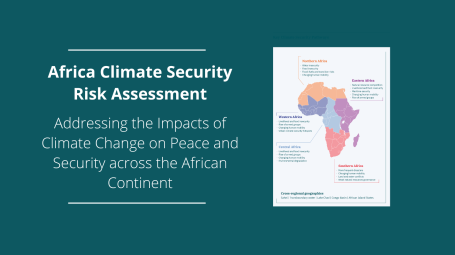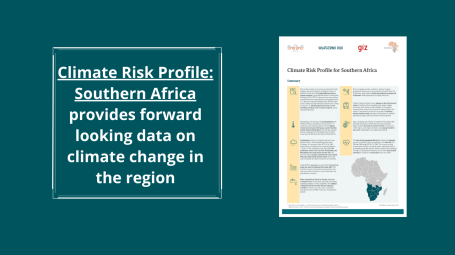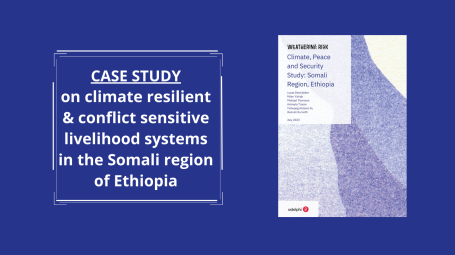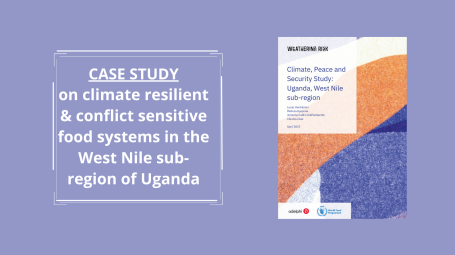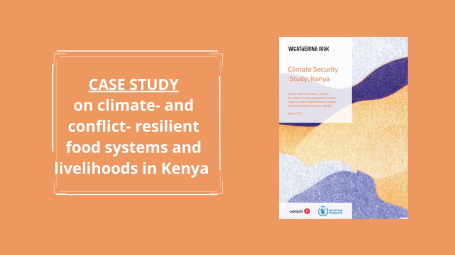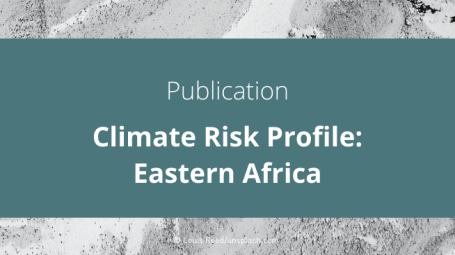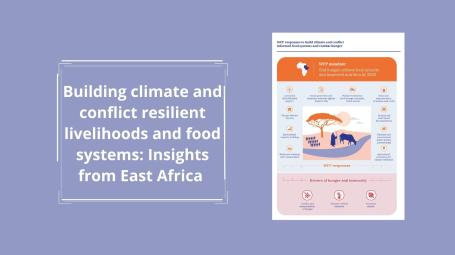-

Multi-Level Approaches to Sustainable Peace in Nigeria’s Middle Belt
This report examines climate-sensitive peace programming in Nigeria’s Middle Belt, focusing on dialogue and mediation led by the Centre for Humanitarian Dialogue (HD) since 2022. It highlights the impacts of for integrating climate adaptation and resource management into local peace agreements, and showcases best practices. The report offers recommendations to further strengthen inclusive resource-sharing and local peace infrastructures, aiming to boost community resilience, improve livelihoods, and promote lasting peace across Benue, Nasarawa, Plateau, and Taraba states. -
Africa Climate Security Risk Assessment
The Africa Climate Security Risk Assessment (ACRA) is the first comprehensive study of climate security across Africa. It identifies climate security pathways across the African Union’s five regions and explores responses, good practices and recommendations, in order to inform the first Common African Position on climate change, peace and security. -
Africa Climate Security Risk Assessment: Executive Summary
This executive summary of the forthcoming Africa Climate Security Risk Assessment summarises insights on climate change, peace, and security in Africa. The report itself was requested by the African Union Peace and Security Council (AU-PSC) and is the result of the collaboration between the African Union Commission for Political Affairs, Peace and Security (AUC-PAPS) and adelphi research. -
Climate Risk Profile: Southern Africa
The Climate Risk Profile for Southern Africa provides forward-looking data on the climate in Southern Africa with the goal of supporting resilience-oriented short to long-term planning. The profile summarises projected climate parameters and related sectoral impacts under two different emissions scenarios from now until 2080. -
Climate, Peace and Security Study: Somali Region, Ethiopia
This study explores the effects of climate impacts such as extreme heat and water stress as risks to peace and human security in the Somali Region of Ethiopia. It identifies five key climate insecurity pathways as well as entry points and priorities as guidance for future climate- and conflict-sensitive, peace-oriented programming in the region. -
Climate, Peace and Security Study: Uganda, West Nile sub-region
This study explores entry points for WFP to, in addition to its core humanitarian mandate as a first responder, contribute to building climate-resilient food systems and sustainable peace in the West Nile sub-region of Uganda. -
Climate Security Study: Kenya
This study identifies four interrelated climate security pathways that affect food systems, livelihood security and conflict in Kenya. Through actionable recommendations, it explores ways the World Food Programme (WFP) in Kenya can better mainstream climate adaptation and resilience-building in its strategies, programmes and projects to build sustainable food systems, security and peace. -
Climate Risk Profile: Eastern Africa
The Climate Risk Profile for Eastern Africa provides forward-looking data on the climate in Eastern Africa with the goal of supporting resilience-oriented short to long-term planning. The profile summarizes projected climate parameters and related sectoral impacts under two different emissions scenarios from now until 2080. -
Building climate and conflict resilient livelihoods and food systems: Insights from East Africa
This policy paper frames WFP’s programming in climate resilience, livelihoods and food security within the climate security discourse. It aims to offer insights into action and investments for WFP’s work in East Africa to support climate and conflict informed food systems, and livelihoods that support resilience, ultimately contributing to peace and security.


